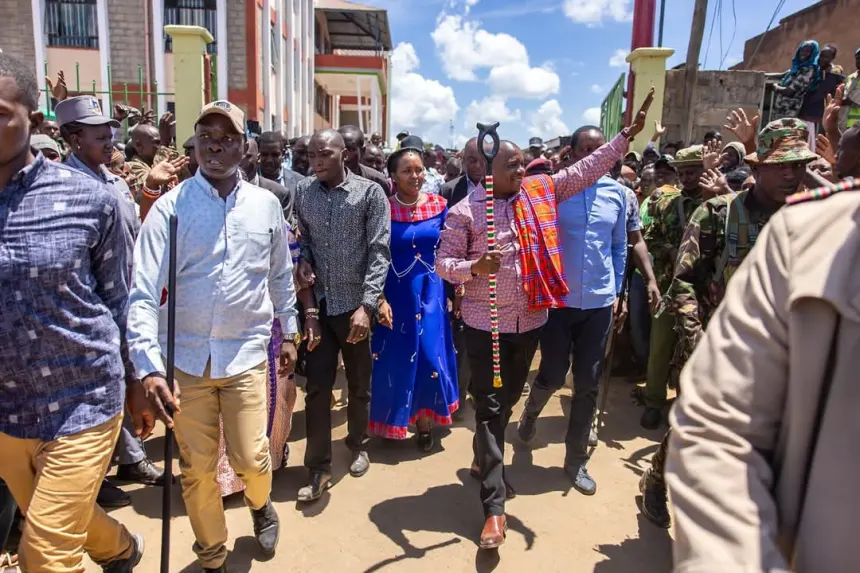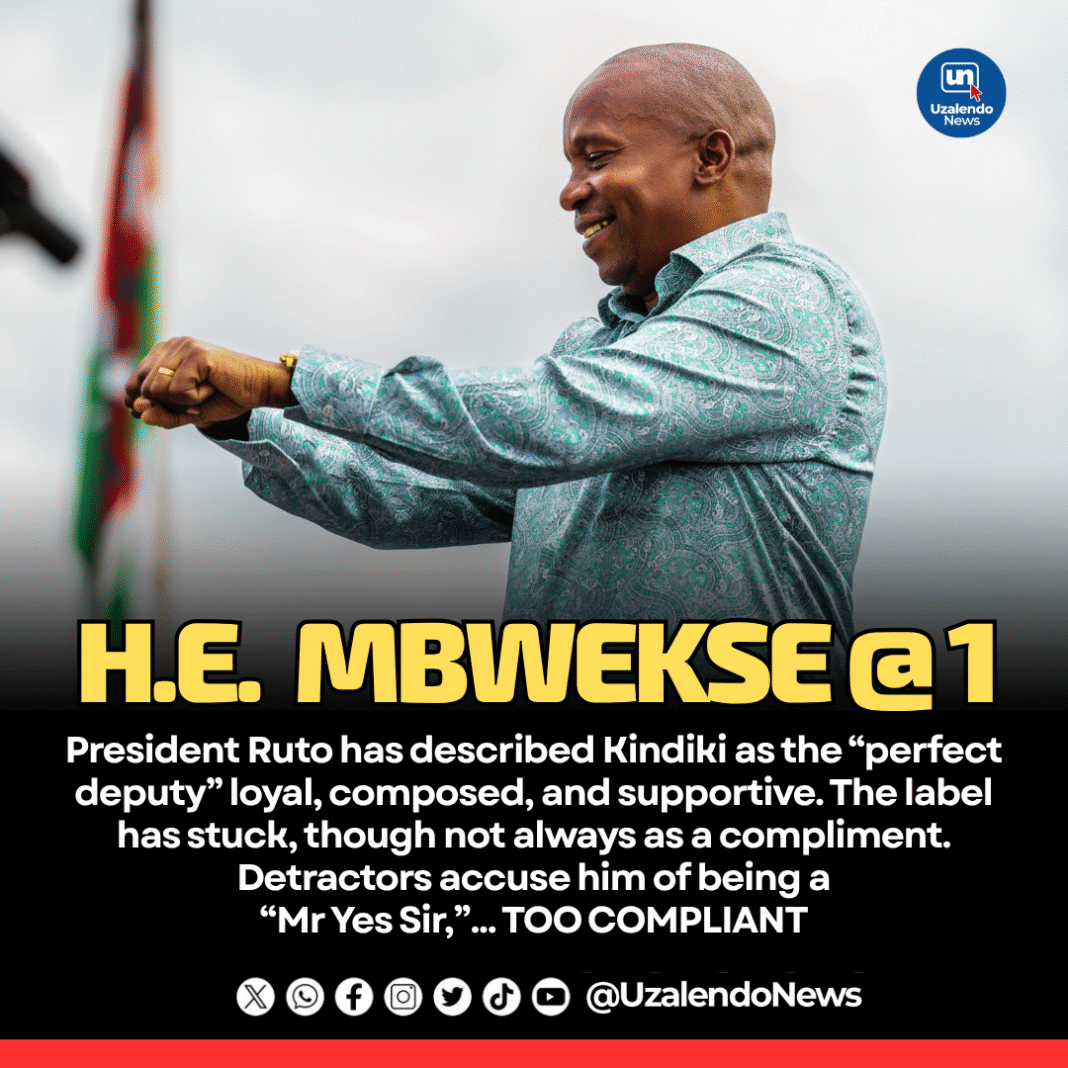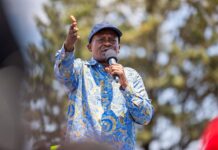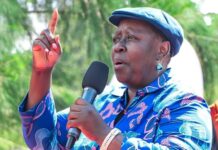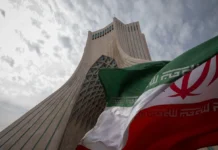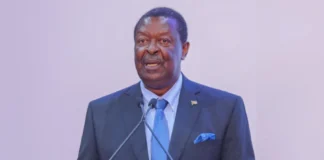
Ni fire si fire? Ni noma si noma? Ni mbwekse si mbwekse? Deputy President Kithure Kindiki roared before a charged crowd in Kasipul, his voice cutting through the air as thousands erupted in cheers, flashing his now-signature two-finger salute to the sky.
It was an unlikely sight, the once reserved law professor, long known for his measured tone and legal precision, now fully immersed in the raw rhythm of street politics. Few Kenyans would have imagined the professor trading his composure for campaign swagger, but Kindiki has mastered the shift with surprising ease.
A year into his tenure as Kenya’s Deputy President, Professor Kithure Kindiki has managed what few in his position have achieved, relevance without noise.
Once passed over as William Ruto’s running mate in 2022, Kindiki’s steady ascent to the second most powerful office came full circle after the impeachment of Rigathi Gachagua.
His promotion from Interior Cabinet Secretary to Deputy President marked a calculated transition from enforcer to statesman.
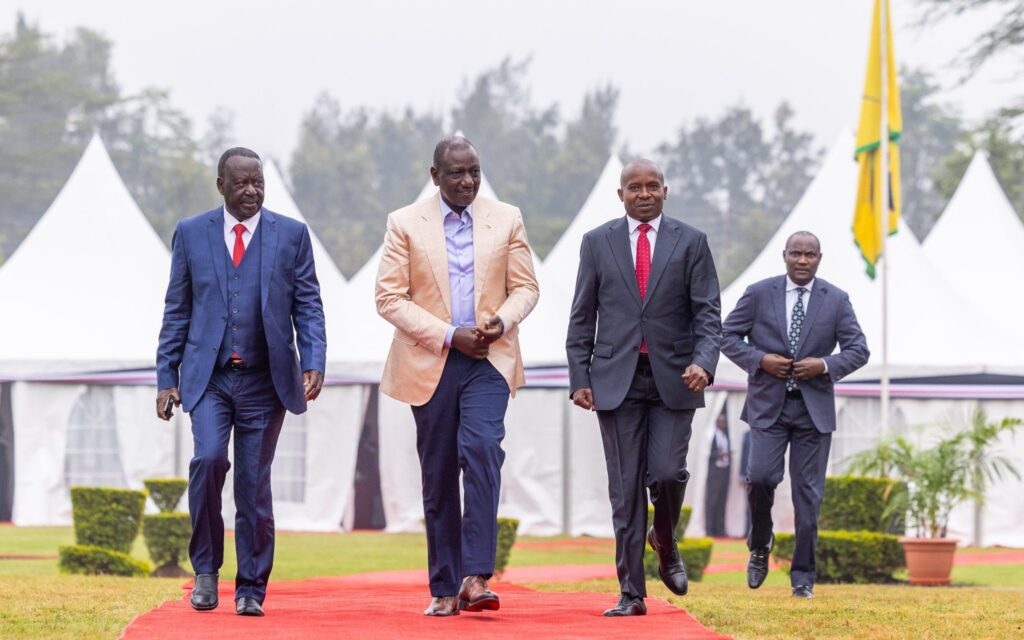
At the Interior Ministry, Kindiki earned a reputation for discipline and precision, launching decisive security operations in the North Rift and curbing terrorism threats.
Supporters hailed him as tough and methodical; critics called him heavy-handed. The memory of that no-nonsense administrator still defines his public image, even as he now seeks to project calm authority at the heart of government.
President Ruto has described Kindiki as the “perfect deputy”. Loyal, composed, and supportive. The label has stuck, though not always as a compliment.
Detractors accuse him of being a “Mr Yes Sir,” too compliant to challenge his boss even when policy missteps glare. In the fractious world of Kenyan politics, where deputies often morph into rivals, Kindiki’s restraint may be his greatest political skill.
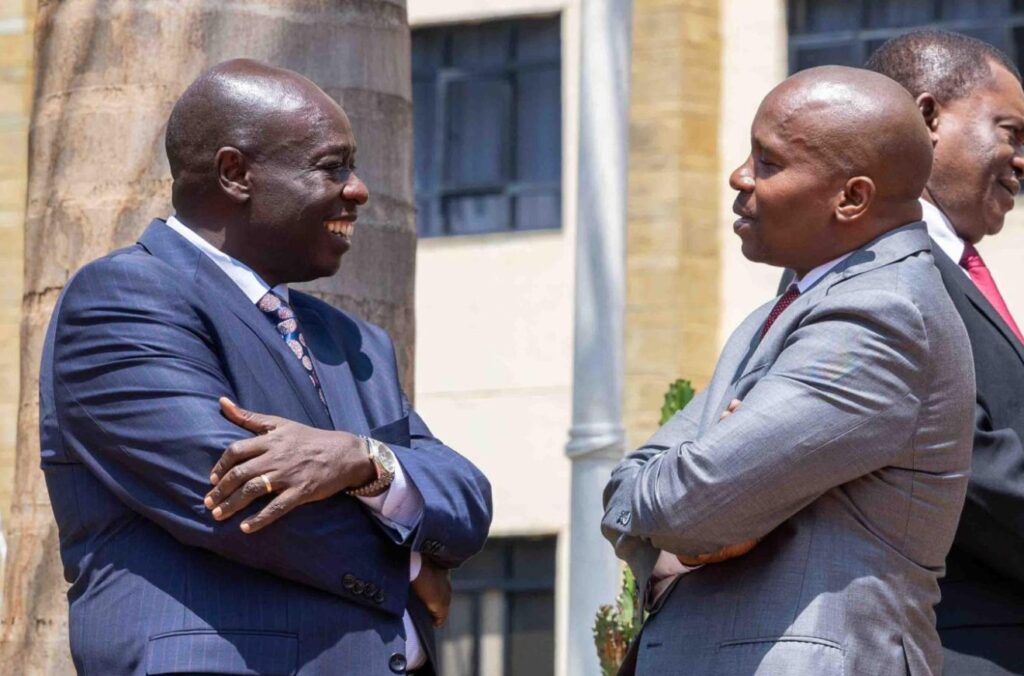
In his first year, he has focused on youth and women empowerment programmes under initiatives such as the National Youth Opportunities Towards Advancement (NYOTA) and Kenya Jobs Economic Transformation.
Critics deride these as political theatre; Kindiki insists they’re lifelines for grassroots enterprise.
“Anyone opposed to it is a selfish man who doesnt doesn’t understand how KSh 10,000 can transform a hustle,” he said in Meru.
He has also proven a loyal defender of the Ruto administration, publicly rebuking opposition leaders, including his predecessor Gachagua, for what he terms divisive politics.
After being accused of lacking any political clout, Kindiki went to work. He has upped his slogan games, and has been on the forefront in ensuring President Ruto’s bid for a second term has the support of the majority women and youth.
His legal intellect gives his rebuttals an academic sharpness, as seen when he countered former President Uhuru Kenyatta’s criticism of Kenya Kwanza’s social health reforms.
Still, his political challenge remains. The Deputy President’s office has faced scrutiny over budget allocations, and his understated style has been read by some as political invisibility. Yet Kindiki’s quiet pragmatism stands in contrast to the bluster of his predecessor, a stability Ruto appears to prize.
Whether this loyalty cements his legacy or confines him to the shadow of power depends on how long he can balance intellect with independence in Kenya’s restless political theatre.
